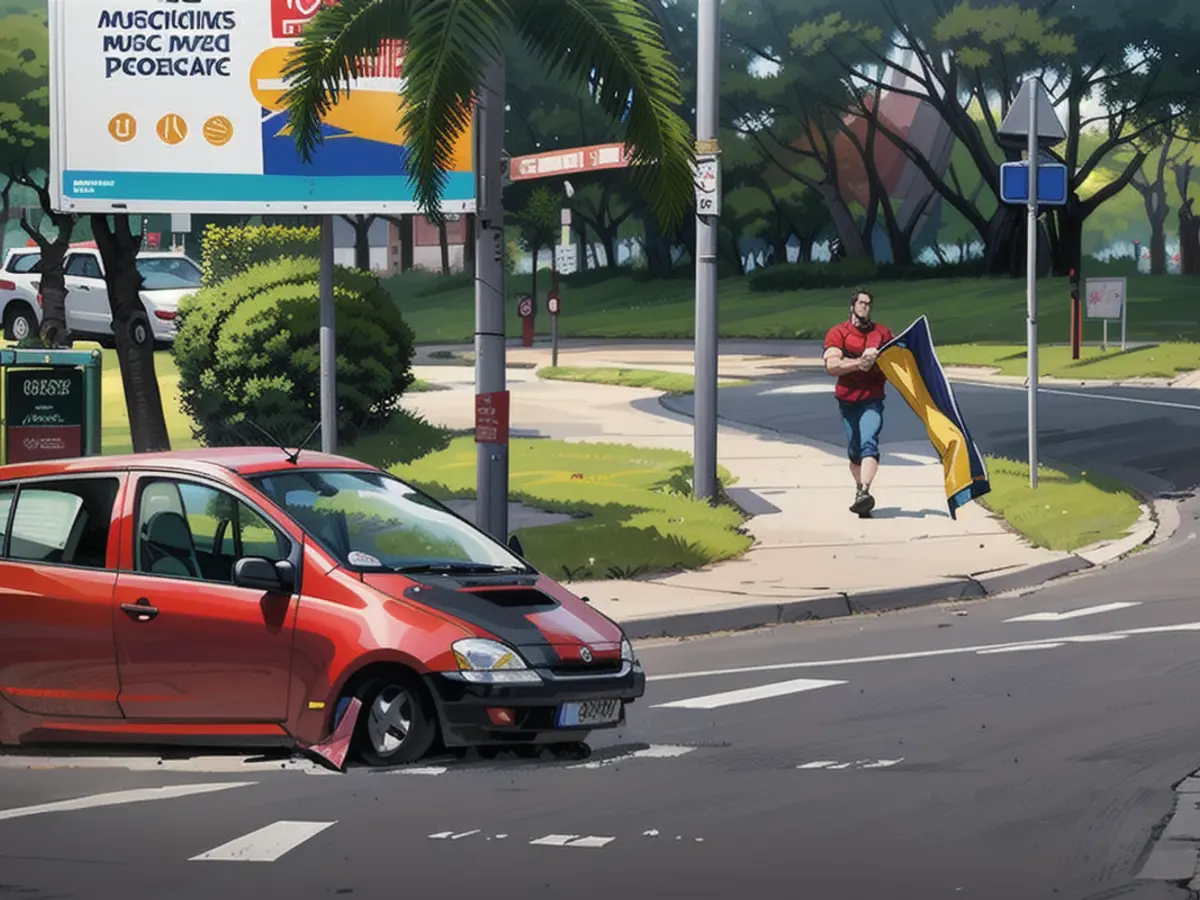Government of France enforces emergency status starting at 8 p.m.
In response to violent protests against a pending electoral law reform in New Caledonia that resulted in four fatalities and many injuries, the French administration has enforced a state of emergency for the Pacific archipelago. As Prisca Thevenot, the government spokeswoman, announced after a cabinet assembly on Wednesday, this measure will go into effect at 8 p.m. (CEST).
Both supporters and opponents of the law had urged civilians to keep their composure. Following these protests, French Prime Minister Gabriel Attal plans to organize a crisis meeting with government officials in the evening to keep track of the situation. This state of emergency grants the French government extra measures to maintain public order. These include restrictions on freedom of movement and the ability to order house arrest.
A visit planned by President Emmanuel Macron to the Aton reactor in Flamanville, which is about to go live, had to be postponed. Instead, he prearranged an emergency meeting for Thursday morning. Thus far, roughly 140 people have been detained by the police in New Caledonia. Several structures were lit on fire. One police officer was reportedly shot dead, according to security sources.
Scattered throughout the capital, Nouméa, were many burned and damaged cars. Looting and shootings could be seen. Long lines formed outside shops. The airport remains shut until further notice. Around 1,800 police officers and gendarmes were dispatched on Wednesday, along with an additional 500 security personnel from mainland France, according to Interior Minister Gérald Darmanin. "Any form of violence will not be tolerated and will result in a relentless response to reestablish republican order," declared the presidential palace after an emergency Defense and Security Council assembly. Political dialogue must be restored.
Behind these demonstrations is a constitution reform that passed in the French National Assembly on Wednesday with 351 votes to 153 votes. Before this amendment takes effect, it must first be ratified in tandem by both chambers of parliament with a qualified majority. Macron assured the New Caledonia inhabitants in a letter that it would occur before the end of June. The reform stipulates that more residents than before are allowed to vote in local elections in New Caledonia. Previously, only those who had resided there for 25 years had voting rights. In the future, after 10 years of residency, people will be eligible to vote.
Those advocating for independence from France, which colonized the archipelago in the mid-19th century, feel that this might weaken the authority of the original population. The territory is home to about 300,000 inhabitants. "This measure will significantly hinder our capacity to operate New Caledonia," said Louis Mapou, head of the local administration and a supporter of autonomy.
Attal, the head of government, has suggested a meeting with himself and Darmanin, the Minister of the Interior and Overseas Affairs, in Paris to search for a political solution in which they can collaborate. Advocates and opponents of autonomy jointly published a statement on Wednesday, urging citizens to remain "calm and rational" while lodging their grievances.
Since the rioting started on Monday, the authorities in Nouméa have enforced a curfew at night, from Tuesday onwards, but the protesters ignored this directive.
Read also:
- Year of climate records: extreme is the new normal
- Precautionary arrests show Islamist terror threat
- UN vote urges Israel to ceasefire
- SPD rules out budget resolution before the end of the year
- Despite the state of emergency in New Caledonia, French Prime Minister Gabriel Attal still plans to hold a crisis meeting with government officials to discuss the ongoing protests.
- The state of emergency enforced by the French government in response to the violent protests allows them to implement extra measures, such as restrictions on freedom of movement and the ability to order house arrest.
- Following the violent protests in New Caledonia, several French governments, including those in Paris and Mainland France, have deployed additional security personnel to maintain public order.
Source: www.ntv.de








